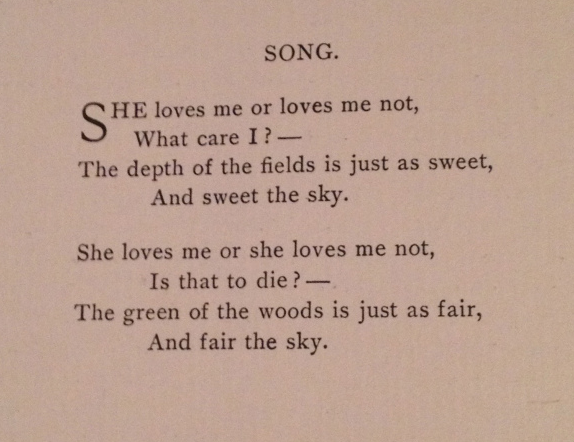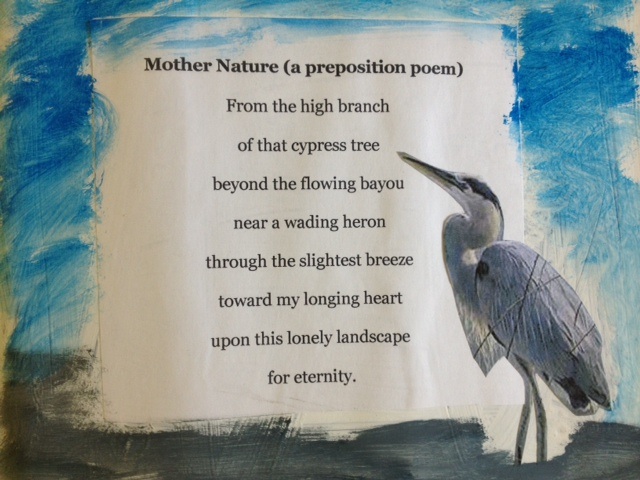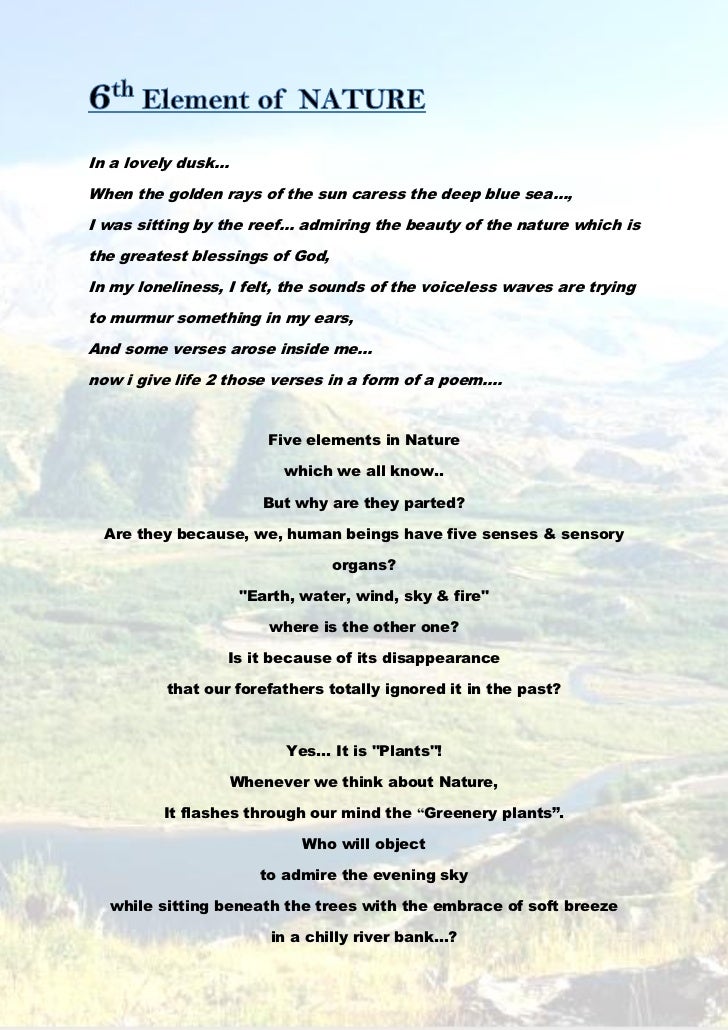Nature Poems Biography
Source(google.com.pk)
William's childhood was spent largely in Cockermouth and Penrith, his mother's home town. He attended the infant school in Penrith between 1776 and 1777, along with his sister Dorothy.Wordsworth's future wife Mary Hutchinson is said to have attended the same school while Dorothy and Wordsworth were still students there.
The magnificent landscape deeply affected Wordsworth's imagination and gave him a love of nature. He lost his mother when he was eight and five years later his father. The domestic problems separated Wordsworth from his beloved and neurotic sister Dorothy, who was a very important person in his life.
With the help of his two uncles, Wordsworth entered a local school and continued his studies at Cambridge University. Wordsworth made his debut as a writer in 1787, when he published a sonnet in The European Magazine . In that same year he entered St. John's College, Cambridge, from where he took his B.A. in 1791.
Dove Cottage was home to the Romantic poet William Wordsworth (1770-1850) and his family for 8 ½ years (1799-1808). Here Wordsworth wrote many of his most famous poems. Wordsworth loved and drew inspiration from this landscape of the Lake District, his home.
There are many ideas associated with ‘Romantic’ poetry, but one of the most important for Wordsworth was to show the link between human experience and the natural world.
During a summer vacation in 1790 Wordsworth went on a walking tour through revolutionary France and also traveled in Switzerland. On his second journey in France, Wordsworth had an affair with a French girl, Annette Vallon, a daughter of a barber-surgeon, by whom he had a illegitimate daughter Anne Caroline. The affair was basis of the poem "Vaudracour and Julia", but otherwise Wordsworth did his best to hide the affair from posterity.
He then went to St John's College Cambridge, where he was not a notable student, but inevitably matured in thought and sophistication. In 1795 he received a bequest of £900 which gave him the means to pursue a literary career.
Encouraged by Coleridge and stimulated by the close contact with nature, Wordsworth composed his first masterwork, Lyrical Ballads, which opened with Coleridge's "Ancient Mariner." About 1798 he started to write a large and philosophical autobiographical poem, completed in 1805, and published posthumously in 1850 under the title The Prelude.
Wordsworth often used Dorothy's journal as a starting point for poems, but more than this he recognised her importance to him in their shared response to the world around them. In his poem 'Home at Grasmere', which is a celebration of the happy years spent at Dove Cottage, Wordsworth pays tribute to his sister:
Where'er my footsteps turned,
Her voice was like a hidden bird that sang;
The thought of her was like a flash of light
Or an unseen companionship, a breath
Or fragrance independent of the wind..
In December 1799 William and Dorothy moved into Dove Cottage, in Grasmere. Coleridge having previously moved to Greta Hall in Keswick. Dorothy was William's secretary as William dictated his poetry. In 1802 William married his childhood companion Mary Hutchinson, and the first three of their five children were born. The year 1808 saw the inadequacy in their cottage. They moved to Allan Bank in Grasmere, a large house that William had condemned as an eyesore when it was being built. They lived here for two years, with poet and friend Coleridge. They then moved to the Old Rectory, opposite St Oswald's Church, a cold and damp house where his two youngest children died.
Wordsworth spent the winter of 1798-99 with his sister and Coleridge in Germany, where he wrote several poems, including the enigmatic 'Lucy' poems. After return he moved Dove Cottage, Grasmere, and in 1802 married Mary Hutchinson. They cared for Wordsworth's sister Dorothy for the last 20 years of her life.
Wordsworth and Dorothy were close as children, but lived apart for many years, spending only a few weeks at a time together. When they moved in to Dove Cottage in December 1799, it was the realisation of an idea which had been dear to them both for many years.
Dorothy has been the 'Woman behind' many of his great writes. Especially, the "Lucy Series" by Wordsworth, was a resultant from a story narrated by Dorothy to Wordsworth, about a gossip she came across in the neighbourhood. That small narration by his sister, about some small dame, who was lost in the snow, one November evening and was believed to have been dead by worried parents and on-lookers, as they had no clue where she was. They were not able to trace her paths beyond a ridge.
".. They followed from the snowy bank
Those footmarks, one by one,
Into the middle of the plank;
And further there were none! "
The sad narration by his sister, somehow inspired him so much, that the poet used the subject for six of his very great works.
The years at Dove Cottage were some of Wordsworth s most productive, and Dorothy too produced writing which is still read and loved today. Her Grasmere Journals chronicle life at Dove Cottage and provide insights into the different personalities of the Wordsworth circle; as well as containing many evocative descriptions of nature.
In 1804, Napoleon declared himself Emperor of France. Wordsworth's disillusionment with the French Revolution has a long and complicated progress (going back even to the Reign of Terror), but this is certainly an important milestone in the poet's turn to conservatism. A decade earlier, Wordsworth had believed in a Godwinian notion of societal evolution, feeling that a revolution (even a bloody one) was a necessary precursor of something better. Now it seemed that France had exchanged one tyrant for another, a tyrant who seemingly wanted to conquer Europe. The French invasion of Switzerland justified Wordsworth's apprehension.
In February of 1805, Wordsworth's sailor brother John drowned. This was a terrible blow, but Wordsworth managed to complete The Prelude in May. In December of 1806, Coleridge returned, just in time to help Wordsworth prepare Poems, in Two Volumes for the printer. As the public only knew Wordsworth for the various versions of Lyrical Ballads, he rightly considered this edition of his poetry to be important for establishing his reputation. Included in this edition was Ode: Intimations of Immortality.
In 1807 the rapidly growing Wordsworth family left Dove Cottage. Their new house had more room, but Allan Bank never really felt like home. 1810 was the year of Wordsworth's great quarrel with Coleridge. When Coleridge moved to London to live with Basil Montagu (whose son was the inspiration for the poem "Anecdote for Fathers"), Wordsworth felt compelled to tell Montagu some unpleasant things about Coleridge's personal habits, in particular the opium addiction. When Montagu reported Wordsworth's concerns to Coleridge Coleridge was deeply hurt, and shunned Wordsworth. London is a long way from the Lake District, but when Coleridge came home to visit his family in 1812, and went out of his way not to see his old friend, Wordsworth became very angry at the snub. Later that year, Wordsworth apologized for any misunderstanding, and there was at least a superficial healing of the rift.
In 1812, the Wordsworth household was struck by two tragedies. In June the poet's daughter Catherine died, and in December his son Thomas. This was certainly one of the most devastating periods in the poet's life. In May of 1813 the family left Allan Bank for Rydal Mount at Ambleside, where Wordsworth would spend the rest of his life. A month earlier Wordsworth had been given the post of Distributor of Stamps for Westmorland, providing his household with some much needed financial stability. (When later writers would come to mock Wordsworth's turncoat politics, the taking of a government job by the former radical would be seen as especially important, and would lead to Robert Browning's charge that the poet had abandoned the good fight "just for a handful of silver." 1813, incidentally, is also the year Robert Southey became the ultimate "establishment" poet by accepting the office of Poet Laureate.)
Wordsworth had other duties to tend too, apart from writing poetry.
In 1813 they moved to Rydal Mount, where William and Mary stayed until their deaths in 1850 and 1859. Whilst at Rydal Mount William became Distributor of Stamps for Westmorland, and had an office in Church St Ambleside. In 1820 he published his 'Guide through the District of the Lakes'. In 1842 he became the Poet Laureate, and resigned his office as Stamp Distributor.
He helped to choose the site of St Mary's Church, built just below Rydal Mount, and where he was church warden from 1833 to 1834.
Wordsworth's new duties did not prevent him from writing poetry, and in 1814 part of The Recluse, planned some fifteen years earlier with Coleridge, was finally published. Entitled The Excursion, this long blank verse poem was intended to be the second of three parts of The Recluse. Wordsworth had finally published the sort of long philosophical poem Coleridge had been sure would guarantee his friend immortality (The Prelude being still unpublished), and Wordsworth had high hopes for the volume.
From this time onward, Wordsworth would spend a good deal of time traveling. In 1820, along with Dorothy and Mary, he retraced the path of the Continental tour he had taken with Robert Jones thirty years earlier. (On this trip, Mary finally met Annette Vallon.) The 1820s brought Wordsworth fame, but produced little poetry. As he approached the age of sixty, he was confronted with the deaths of many of his oldest friends. Between 1825 and 1835, Beaumont, Scott, Coleridge, Charles Lamb, and Robert Jones all died. In November of 1835, when he read in a newspaper about the death of his old friend James Hogg, he produced the famous "Extempore Effusion on the Death of James Hogg," which recalled Wordsworth's many literary friendships, and which many consider his last great poem.
His fame grew. In 1839 he was named an honorary Doctor of Civil Law at Oxford, and handed the award for the Newdigate Prize Poem to a twenty-year-old John Ruskin. In 1840 Queen Adelaide paid a visit to Rydal Mount. In 1843, on the death of Southey, Wordsworth was named Poet Laureate. In 1845 he met Tennyson, whose poetry he admired, and the two exchanged kind and complimentary words. At the time of his death on April 13, 1850, Wordsworth was widely considered the greatest poet in the world, and a national institution; Matthew Arnold solemnly announced that "the last poetic voice is dumb." Later that year, The Prelude was published under a title suggested by Mary Wordsworth.
In 1850 William caught a cold on a country walk, and he died on 23 April, St George's day, 80 years after his birth. Mary died in 1859, exactly nine years after the poet's demise. He and Mary have a simple tombstone in the churchyard of St Oswald's Church in Grasmere, now one of the most visited literary shrines in the world.
William Wordsworth wrote some 70000 lines of verse, 40000 lines more than any other poet.
Nature Poems Poems About Love For Kids About Life About Death About Friendship For Him About Family Tumblr For Her About Nature

Nature Poems Poems About Love For Kids About Life About Death About Friendship For Him About Family Tumblr For Her About Nature
Nature Poems Poems About Love For Kids About Life About Death About Friendship For Him About Family Tumblr For Her About Nature
Nature Poems Poems About Love For Kids About Life About Death About Friendship For Him About Family Tumblr For Her About Nature

Nature Poems Poems About Love For Kids About Life About Death About Friendship For Him About Family Tumblr For Her About Nature
Nature Poems Poems About Love For Kids About Life About Death About Friendship For Him About Family Tumblr For Her About Nature

Nature Poems Poems About Love For Kids About Life About Death About Friendship For Him About Family Tumblr For Her About Nature

Nature Poems Poems About Love For Kids About Life About Death About Friendship For Him About Family Tumblr For Her About Nature

Nature Poems Poems About Love For Kids About Life About Death About Friendship For Him About Family Tumblr For Her About Nature

Nature Poems Poems About Love For Kids About Life About Death About Friendship For Him About Family Tumblr For Her About Nature
Nature Poems Poems About Love For Kids About Life About Death About Friendship For Him About Family Tumblr For Her About Nature

Nature Poems Poems About Love For Kids About Life About Death About Friendship For Him About Family Tumblr For Her About Nature
Nature Poems Poems About Love For Kids About Life About Death About Friendship For Him About Family Tumblr For Her About Nature

Nature Poems Poems About Love For Kids About Life About Death About Friendship For Him About Family Tumblr For Her About Nature

No comments:
Post a Comment